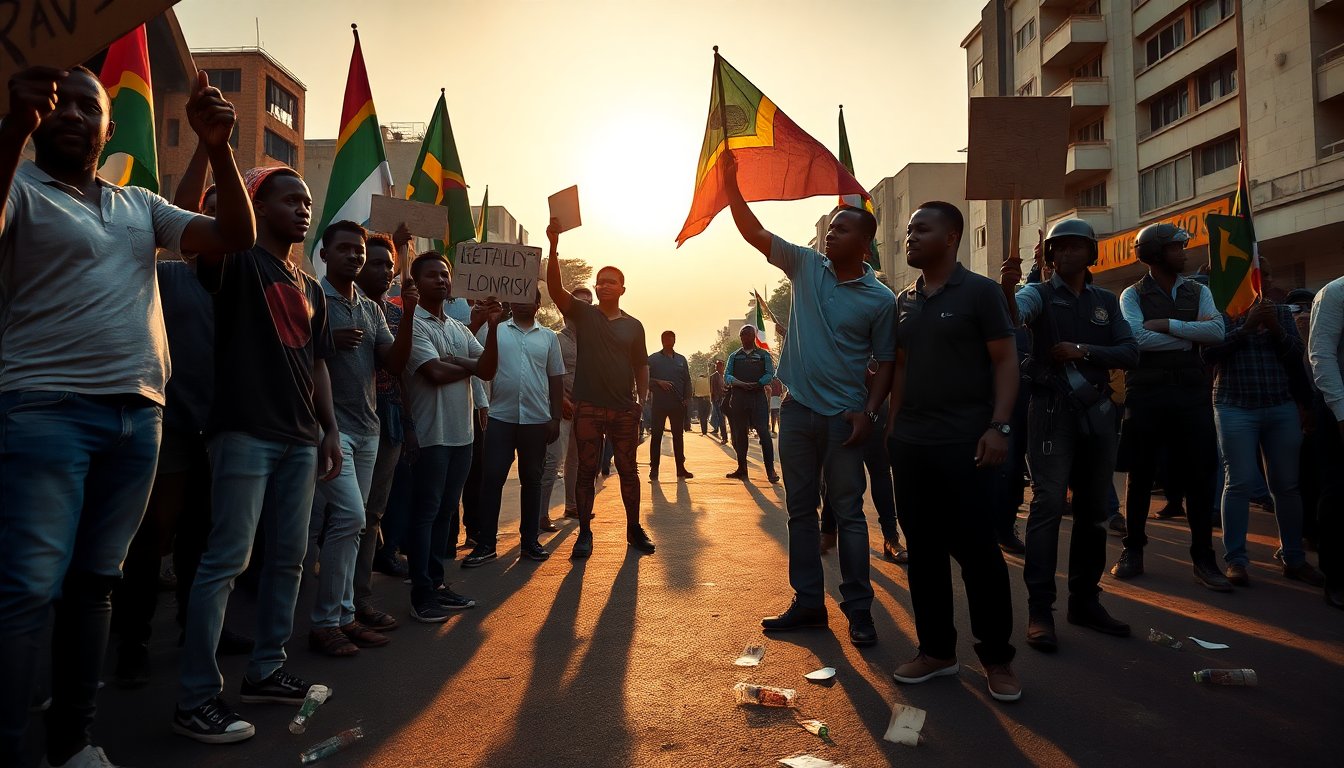Table of Contents
In the aftermath of a contentious election, Tanzania is witnessing a surge in protests, raising concerns for the safety of demonstrators. The situation escalated when the incumbent president restricted her two primary opponents from contesting, resulting in widespread accusations of a sham election.
Rights organizations have expressed alarm over the rising violence against protesters. Demonstrators are voicing their outrage not only at the election process but also at the government’s oppressive tactics to suppress dissent. As tensions rise, the international community is closely monitoring the developments in this East African nation.
The facts
Election backdrop and restrictions
The presidential election has faced significant challenges due to allegations of unfair practices. The decision to bar key political figures from running has sparked public outrage, as many view it as a direct threat to democratic principles. Critics assert that these actions have diminished trust in the electoral process and contributed to ongoing unrest.
Many Tanzanians believe elections should reflect the will of the people. However, the exclusion of prominent candidates has led to widespread disillusionment. This sense of disenfranchisement has triggered protests in various cities, with citizens calling for accountability and a return to a fair electoral system.
Growing unrest and violent clashes
Reports indicate that protests are escalating, with dozens of individuals reportedly losing their lives in clashes with security forces. Eyewitness accounts reveal alarming instances of police brutality against peaceful demonstrators. Human rights organizations have condemned the excessive use of force and are urging immediate measures to safeguard citizens’ rights.
The government’s aggressive response has intensified public anger. Demonstrators are taking to the streets, displaying banners and chanting slogans that call for justice. In return, authorities have deployed tear gas and batons, creating a dangerous cycle of violence that risks spiraling out of control.
International implications and responses
The unfolding crisis in Tanzania has attracted international scrutiny. Numerous foreign governments and organizations have expressed concern regarding the rising violence. Various entities have called for dialogue and a peaceful resolution, urging the Tanzanian government to engage with opposition leaders and address citizens’ grievances.
In light of this turmoil, the critical question is whether the government will respond to calls for reform or continue to suppress dissent. The outcome of this situation may significantly impact the future of democracy in Tanzania and beyond.
The facts
Police confirm that protests have erupted across the country, with citizens demanding accountability and reform. Observers report clashes between demonstrators and law enforcement, leading to numerous injuries and arrests.
The consequences
According to official sources, the international community is closely monitoring the situation. Sanctions and diplomatic pressure may follow if the government fails to address the unrest. The potential for increased instability in the region remains a concern.
The facts
Grassroots movements advocating for transparency and fairness in the electoral process are emerging in Tanzania. Citizens are uniting in their demand for a government that respects their rights. Despite the current challenges, there is a growing belief among some Tanzanians that change is possible.
The consequences
The ongoing protests reflect the courage of the Tanzanian people in their fight for an inclusive political environment. As these movements gain traction, the international community is closely monitoring the situation, hoping for a resolution that honors the voices of the populace.


